With the rising popularity of short-term rental investments, and the growing interest of the public to find hotel alternatives, the local government in Nevada decided to take a closer look into the short-term rental industry. It’s no surprise that the local authorities have begun to crack down on rentals without proper documentation. It’s not only the government questioning these rentals but the neighbors of these homes as well. If you’re planning on converting property in Southern Nevada into a short-term rental listing then you’ll want to make sure you protect your investment with the proper documentation.
A short-term residential rental is the commercial use of a residential unit wherein guests occupy the unit for less than thirty-one consecutive days. Each residential unit requires either a Conditional Use Verification (CUV) or a Special Use Permit (SUP) from the Planning Department. A Special Use Permit requires the notification of neighboring property owners and a two-part hearing process before the Las Vegas Planning Commission and the Las Vegas City Council. All short-term residential rentals must obtain a business license prior to operating. The license application has special requirements and restrictions. (Visit lasvegasnevada.gov for the special requirements or consult with local legal counsel.)
The Las Vegas City Council passed an ordinance last month requiring short-term rentals listed on hosting platforms like Airbnb, HomeAway and VRBO to submit quarterly reports detailing the number of bookings, listings, and operators in the city. There is an estimated 800-1,000 short-term rentals operating without a proper license and not paying room tax. These mistakes could be costly for anyone looking to turn a profit with their investment. Certain violations can draw fines and even shut down your operation for a significant period of time. If you want to bring your property into compliance or start utilizing a property as a short-term rental, then you should consider speaking with an experienced Las Vegas business attorney. They will be able to guide you through the process and make sure your listing is compliant with Nevada law. However, before you are able to obtain the proper licensing, the neighbors of the location will be allowed to provide input. That being said, a fair amount of research has to be done by the business owner before beginning a project like this.
